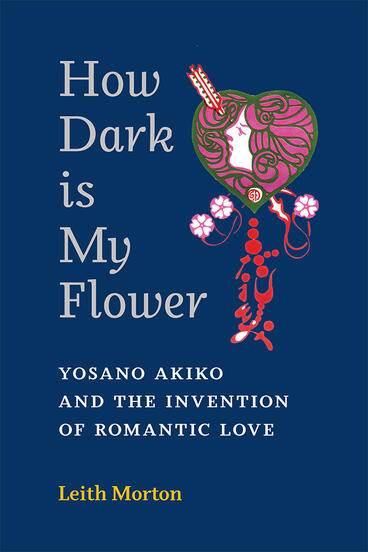How Dark Is My Flower
Yosano Akiko and the Invention of Romantic Love
Explores romantic love in modern Japanese literature through the work of the leading poet in the Myōjō circle
Description
The poetry of Yosano Akiko covers all the many and varied aspects of the experience of love—from early romantic encounters between the lover and beloved to the intimate pleasures of mutual infatuation and then true love. The journey outlined in Akiko’s verse also grapples with jealousy and unrequited passion, as Akiko’s poem-narrative treats the rivalry between herself and her best friend, the poet Yamakawa Tomiko, for the affection of the dashing young literary lion, Yosano Tekkan, who later became Akiko’s husband. Thus, How Dark Is My Flower: Yosano Akiko and the Invention of Romantic Love tells a number of stories: a real-life romance unfolds in the poetry of these three poets examined in the book, as well as the story of the journey from romanticism to modernism undertaken by early 20th century Japanese poetry.
How Dark Is My Flower emphasizes the astonishing innovations in diction and style, not to mention content, in Akiko’s work that transformed the tanka genre from a hidebound and conservative mode of verse to something much more daring and modern. This book pays particular attention to poetry, particularly the tanka genre, in the evolution of modernism in Japanese literature and breaks new ground in the study of modern Japanese literature by examining the invention and evolution of the concept of romantic love.
Leith Morton is Professor Emeritus at Tokyo University of Technology and Academic Affiliate in the School of Languages and Cultures at the University of Sydney.
Reviews
“This work brings together and builds on the extensive scholarship in Japan and the budding scholarship in the West on Yosano Akiko, her circle, and modern tanka. It manages to grapple with an enormous body of work and also bring the opinions of a variety of critics and critical approaches to bear. The translations are often the first of these poems into English, and they are extremely appealing.”
—Laurel Rasplica Rodd, University of Colorado Boulder
- Laurel Rasplica Rodd
“The book gives a detailed exegesis of the poetry of the Myōjō school, whose key founders Yosano Hiroshi, Yosano Akiko, and Yamakawa Tomiko were leaders in the modernization of the tanka, whose importance to the history of Japanese literature cannot be overstated. Morton is clearly informed by and builds on an encyclopedic review of Japanese-language scholarship on the topic, providing an enormous service to the field.”
—Julia Bullock, Emory University
- Julia Bullock, Emory University
"In this prodigious and exhaustive study, Morton provides detailed evidence to support his thesis that the invention and evolution of romantic love (ren’ai) in Japan from the 1890s to 1920 was inspired and disseminated by the poets of the Myōjō circle, most notably in the tanka of Yosano Akiko. Rated highly recommended."
- L.I. Winston
--CHOICE Connect

